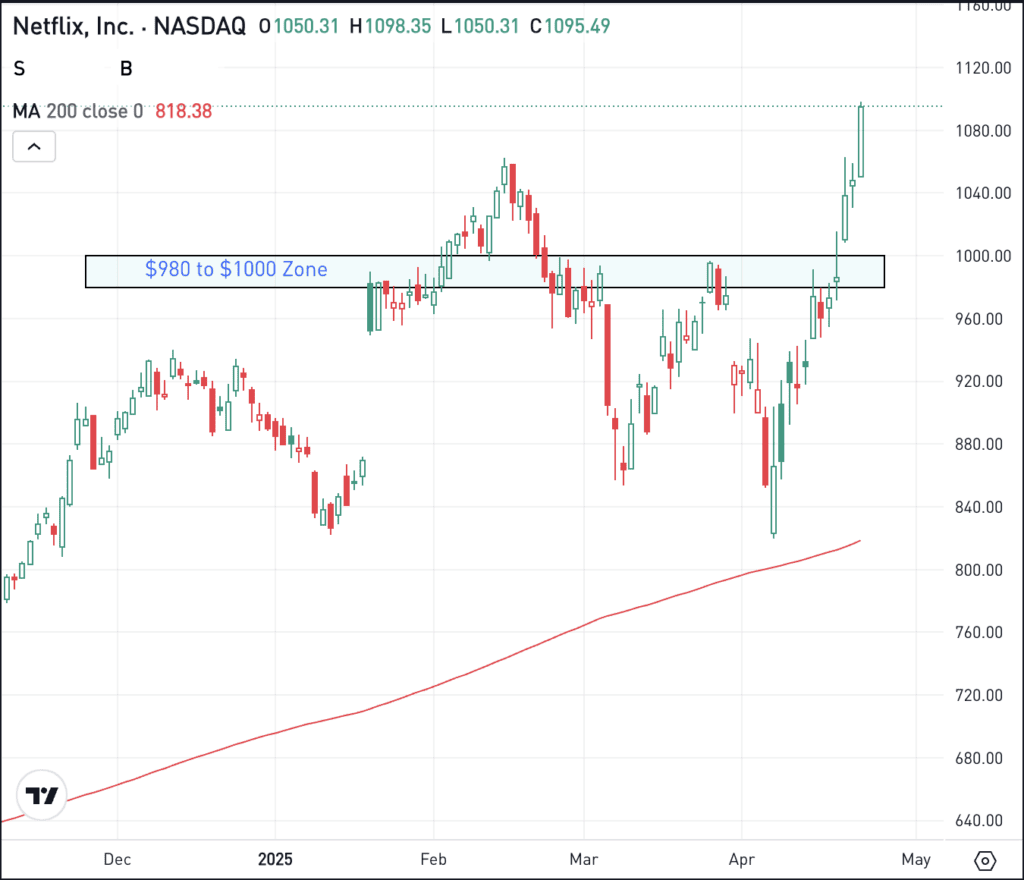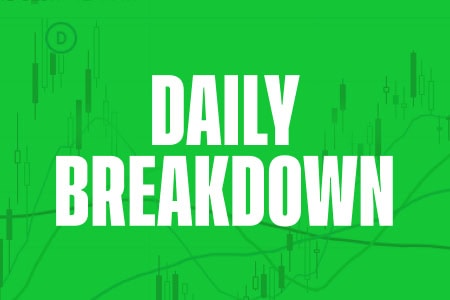The Daily Breakdown takes a look at what companies are actually seeing and saying about the current environment as they report earnings.
Friday’s TLDR
- Here’s what companies are actually saying
- Netflix rallies to all-time highs
What’s Happening?
I’ve gone through 18 conference calls, ranging from banks to credit card companies to airlines. And to be honest? Next week’s earnings slate might be even more critical, with Visa and Mastercard, automakers, restaurants, and Amazon all set to report.
Peter Sefzi, the chief banking officer at Comerica, summed up the environment well: “What you’re hearing from customers is that they’re not putting the brakes on, but they’re taking their foot off the accelerator and you’re seeing that around the country.”
Key Points From Corporate America
Consumers are being more selective, but not necessarily pulling back on spending — at least not yet. Affluent consumers continue to spend, while lower income consumers are being more prudent.
Airlines like United, American, and Delta all noted significant macro-driven softness in demand, especially among price-sensitive, discretionary travelers. These are “main cabin” travelers, while premium bookings remained strong.
American Airlines CEO Robert Isom said, “Nobody really relishes uncertainty when they’re talking about putting people on a vacation and spending hard-earned dollars.”
American Express management pointed out that although airlines are seeing softer spending trends, that’s not necessarily the case for other travel and leisure activities — like restaurants, lodging, and international travel bookings.
As JPMorgan CFO Jeremy Barnum noted, “When you take a step back and you ask, are we seeing signs of distress in the lower-income segment? The answer is no.”
It’s not solid everywhere, though.
DR Horton reported a slower-than-expected spring homebuying season, with affordability constraints and economic uncertainty dampening demand. Still, committed buyers, particularly first-timers, remain active. Elsewhere, Chipotle experienced a broad-based consumer pullback due to concerns around economic uncertainty and inflation. Executives believe the slowdown is macro-related and not linked to specific income segments or regions.
The Bottom Line
Right now, the consensus is that consumers remain generally healthy but cautious. Businesses are holding their breath, hoping for more clarity on global trade and a return to normal economic conditions. For now, they and consumers are holding steady, preparing for things to potentially get worse and hoping that they don’t.
Caution is growing due to macroeconomic uncertainty, with businesses holding back on new investments and hiring. JPMorgan CEO Jamie Dimon warned of a 50/50 chance of a recession and noted a general slowdown in corporate activity, including hiring and M&A.
We should have a better vibe check on the consumer after next week’s reports.
Want to receive these insights straight to your inbox?
The Setup — Netflix
You may not know it by the headlines, but Netflix stock has been hitting record highs lately.
The company reported earnings last week, beating analysts’ expectations and telling a pretty optimistic story. Perhaps not surprisingly, management remarked that the global trade tensions were not really having a notable impact on its business.

The stock has rallied in five straight sessions and is hitting new record highs amid the rally. That’s referred to as relative strength — not only vs. the overall S&P 500 or Nasdaq 100, but also vs. tech, a group that has struggled badly so far in 2025.
Analysts expect about 14% revenue growth this year, followed by 12% growth in 2026. On the earnings front, estimates call for almost 30% growth this year and 20% in 2026.
Some investors might find these estimates and the relative strength attractive. Others might dismiss the stock due to its valuation, large rally, or worries about volatility. In either case, some may opt to buy NFLX now, wait for potentially lower prices, or avoid it altogether.
Disclaimer:
Please note that due to market volatility, some of the prices may have already been reached and scenarios played out.



